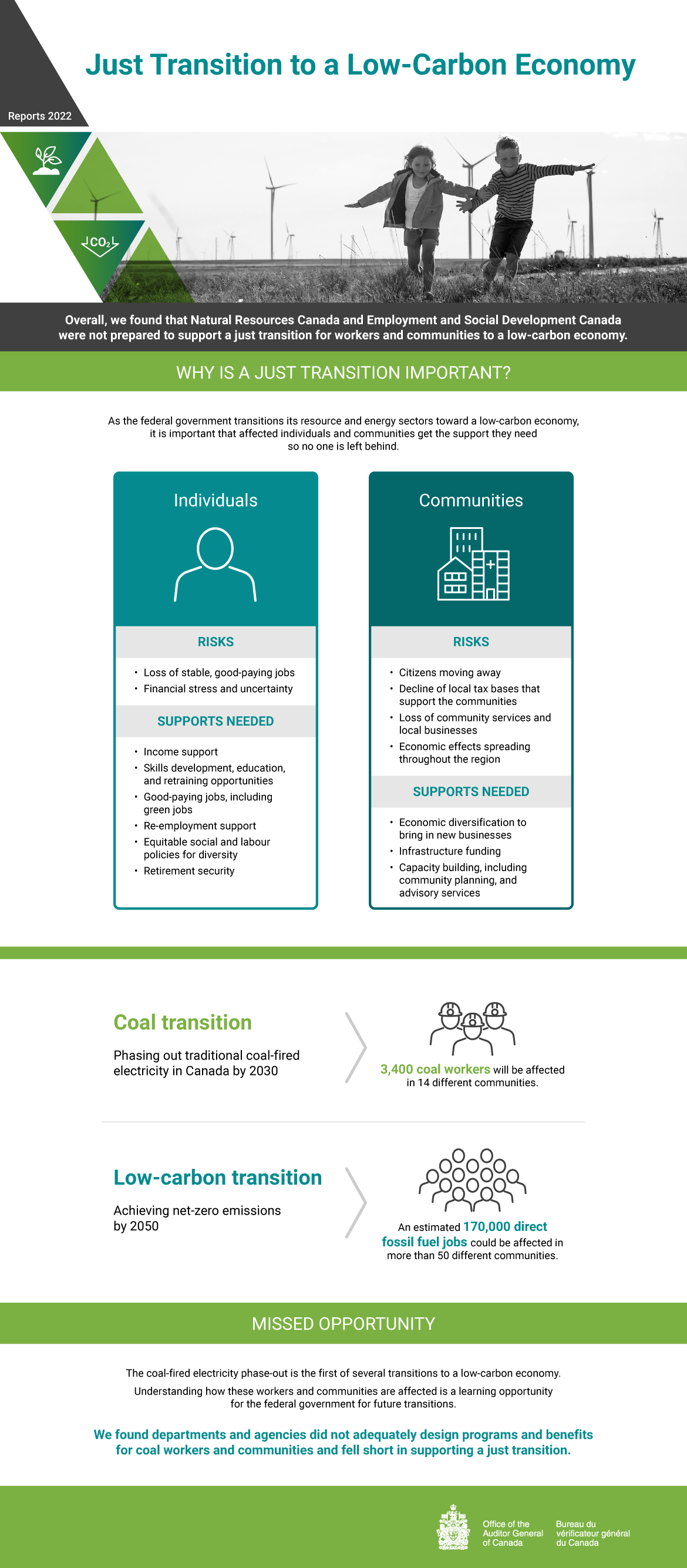Report 1—Just Transition to a Low-Carbon Economy—Infographic

Text version
This infographic presents findings from the 2022 audit report on a just transition to a low‑carbon economy.
Overall message
Overall, we found that Natural Resources Canada and Employment and Social Development Canada were not prepared to support a just transition for workers and communities to a low‑carbon economy.
Why is a just transition important?
As the federal government transitions its resource and energy sectors toward a low‑carbon economy, it is important that affected individuals and communities get the support they need so no one is left behind.
For individuals, the risks of transitioning to a low‑carbon economy include the loss of stable, good-paying jobs and increased financial stress and uncertainty. Individuals will need the following supports:
- income support
- skills development, education, and retraining opportunities
- good-paying jobs, including green jobs
- re‑employment support
- equitable social and labour policies for diversity
- retirement security
For communities, the risks of transitioning to a low‑carbon economy include citizens moving away, the decline of local tax bases that support the communities, the loss of community services and local businesses, and economic effects spreading throughout the region. Communities will need the following supports:
- economic diversification to bring in new businesses
- infrastructure funding
- capacity building, including community planning, and advisory services
Coal transition
Phasing out traditional coal-fired electricity in Canada by 2030 will lead to 3,400 coal workers being affected in 14 different communities.
Low‑carbon transition
Achieving net‑zero emissions by 2050 could lead to an estimated 170,000 direct fossil fuel jobs being affected in more than 50 different communities.
Missed opportunity
The coal-fired electricity phase‑out is the first of several transitions to a low‑carbon economy.
Understanding how these workers and communities are affected is a learning opportunity for the federal government for future transitions.
We found departments and agencies did not adequately design programs and benefits for coal workers and communities and fell short in supporting a just transition.